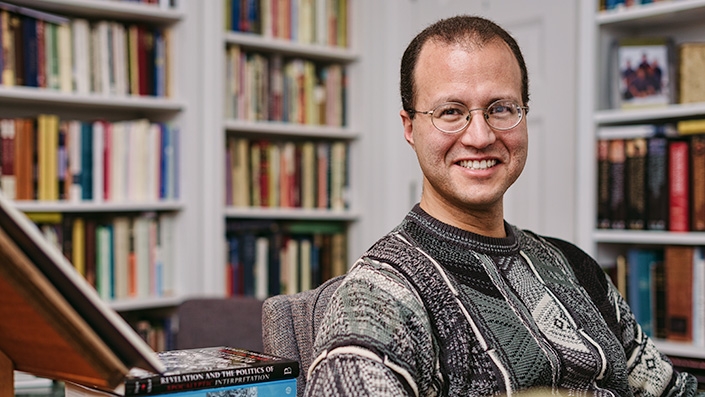
To the series “Pro Tips for Busy Writers,” I’m pleased to welcome David DeSilva.1
David is the Trustees’ Distinguished Professor of New Testament and Greek at Ashland Theological Seminary.
David has published or in press more than 15 academic books and another 13 for popular audiences. Beyond this, he has contributed upwards of 50 articles and essays to journals and edited volumes.
For more about David, see his personal website.
Larger projects (e.g., a dissertation, a second monograph) can be more important but less urgent than others (e.g., conference papers, book reviews). How do you avoid letting good-but-less-important projects push out or cause you to procrastinate on those that are more important but less urgent?
I’m personally not very good at this, but the key is, first, to say “no” to conference papers, invitations to contribute essays, and especially to book reviews (and usually invitations to respond to questionnaires that aren’t about one of my projects!).
[Given this principle, my special thanks to David for his decision not to say “no” to participating in this interview! 🙂 ]
I think I’ve done five book reviews in the last decade. When I do think about conference papers or essay invitations, I try to make sure they are in line with my current (or anticipated) project so that my head keeps swimming in the same pool.
When you’ve worked on multiple projects concurrently, what processes, principles, or practices have you used to be sure you’re making good progress on all fronts?
To be honest, I don’t really work on projects concurrently. If necessary, I set the one aside and get the other done, then return to the first one.
I find immersion to be the best way for me to make progress on something.
Do you divide your process between research and writing? If so, how?
Yes, I tend to try to do the bulk of the research first, take a plenitude of notes, and shape them into the orderly progression that will become the article or book.
Of course, new questions arise in the course of the actual writing. But those tend to be rather specific things that I had not anticipated having to dig into and don’t stall the writing process too much.
What do you do to help you avoid overcommitting yourself either on timelines that are too short for their projects or on how many projects you take on? How do you avoid undercommitting?
Undercommitting has just never been a danger for me. I’ve used those rare occasions when I’ve had free time between projects to be creative in other ways, like composing anthems or arranging organ music for my church work.
I have a serious problem with overcommitting, and I’ll simply say that it’s better to err on the side of undercommitting—and having some good free time for other interests or just for the tasks of home ownership and yard maintenance!—than on the side of overcommitting.
The Hebrew Bible image for enjoying covenant blessings was sitting under one’s vines and trees, not incessantly working on them.
When working on multiple projects concurrently, what tools do you use (e.g., filing systems, project management tools, apps)?
When I can’t avoid working on multiple projects in the same time frame, I tend to compartmentalize and devote, say, Monday and Tuesday to the one and Thursday and Saturday to the other (before our kids were grown, however, Saturdays were sacred to playing!). That way, I can keep my focus in one place at a time.
But in these cases, they’ve also been significantly different kinds of projects, e.g., working on the Greek handbook on Galatians [affiliate disclosure] (so a lot of very technical and not-so-creative work) alongside writing my novel, Day of Atonement [affiliate disclosure].
Organization is, of course, essential. I’ve never used “project management tools.” I just put all the physical books I need for one project on one group of shelves and those for the other on another group of shelves. I divide all my notes and drafts into appropriate folders on my computer desktop.
How has your approach to concurrent writing projects changed over time?
I have accepted my tunnel-vision approach and try not to work against myself.
What are two or more projects you’re particularly excited about that you’re now working on concurrently?
I’m excited not to be working on two or more projects concurrently!
What closing advice (if any) would you offer to (post-)graduate students and new faculty as they try to become comfortable and competent for themselves in making progress concurrently on multiple writing projects?
Publish articles and present papers on the way to completing larger monographs. If there are key new works that you must engage to do your own research, target those (and only those) for book reviews. (This is essentially advice not to get involved in concurrent projects, but to get the most out of a single project.)
Don’t stress yourself out about the quality of what you’re writing. Just keep working at the level at which you were working as you successfully completed your dissertation.
What you did once, you can do again—and again. Your skills will naturally grow with use and exercise, particularly as you keep engaging the research of your peers.
Header image provided by Freddie Marriage via Unsplash. ↩

Leave a Reply